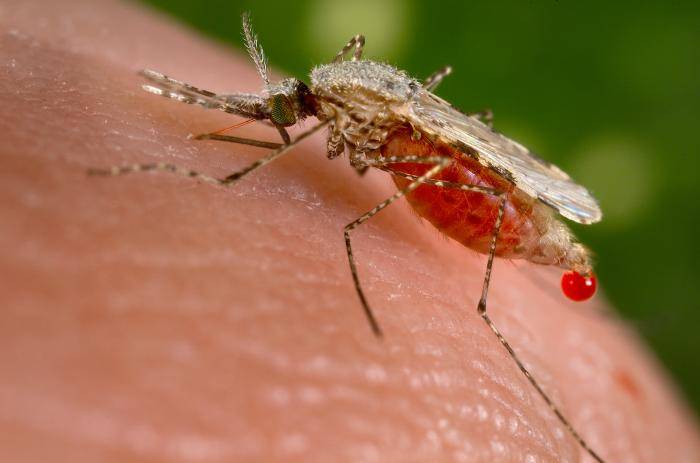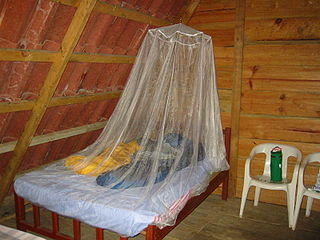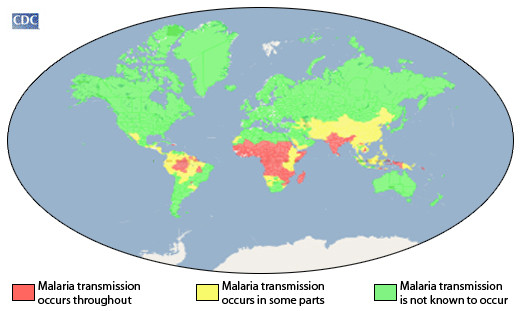10 Malaria Prevention Tips for Travelers
Are you planning to travel soon to a high risk area for malaria? Have you educated yourself about this dangerous infectious disease? Malaria is a life-threatening infection caused by the Plasmodium parasites that are transmitted through the bite of mosquitoes. It can be prevented and even cured but malaria claims the lives of over 600,000 people every year. Travelers who are not immune and do not take the necessary precautions are very vulnerable to contracting malaria. There is currently no vaccine to protect you against malaria although there is ongoing research in the field. A few practical tips can make all the difference in preventing malaria.
Check Malaria Areas
It is important to find out if the area you are visiting is in fact a malaria-endemic area or not. Do not depend on travel agents and the advice of friends or family who may be seasoned travelers. The Center for Disease Control (CDC) has detailed malaria map applications that will provide accurate information for travelers. Malaria may occur throughout some countries, or only in certain regions of a country. However, you need to be fully aware of the high risk areas even if you are traveling to parts of a country where malaria transmission is not known to occur. You may change your travel plans while on vacation and find yourself inadequately prepared in a high risk area.
Picture of the malaria map from CDC.gov
Take Antimalarial Drugs
There are several antimalarial drugs which are used to prevent malaria. Despite the hype about drug-resistant malaria parasites, these drugs are still used either on its own or in combination to both prevent and treat malaria. You should speak to your doctor about your travel plans and concerns about malaria. Antimalarial drugs need to be taken for a period of time before you embark on your trip and continued even after you return to ensure that any malaria parasites in your bloodstream are destroyed. High risk people like the very young, elderly, pregnant women and those with a weak immunity should seek advice from a doctor before traveling.
Stay Indoors at Night

Malaria is spread by the Anopheles species of mosquitoes. It is not the mosquito itself that causes malaria but the parasite residing within the insect. The malaria parasite is transferred into the bloodstream of humans when the mosquitoes feed off human blood. These mosquitoes tend to feed at night so you have to be extra cautious at your travel destination during dusk till dawn. Ideally you should stay indoors at night to reduce the chance of contracting malaria. It may spoil some of the holiday fun but you can quite effectively control the environment indoors to reduce the chance of mosquito bites. If you do have to go outdoors then ensure that you are wearing appropriate protective clothing and use insect repellent.
Wear Protective Clothing
There is no need to invest in expensive and specialized protective wear against malaria. Simply wearing a long sleeved shirt and long pants will suffice. By covering the arms and legs you will reduce the chance of mosquitoes feeding on areas where you may not notice until after it bites. At that point it is too late. Although your hands, neck and head are still exposed, mosquitoes may be less likely to feed at these areas when you are awake. Nevertheless you should take precautions to protect these areas as well to some extent and even if it cannot be covered, a liberal application of insect repellent may suffice.
Apply Mosquito Repellent
There are several different types of mosquito repellent and it is important to use effective applications. Most are available in a spray form so it can be applied liberally over your clothing and on your skin. There are different strengths of these sprays so speak to your doctor and pharmacist about the correct type and method for using it. Lower strengths should be use on young children. Sprays that contain DEET (N,N diethylmetatoluamide) is suitable for use directly on the skin while sprays with permethrin can be applied on the clothing. Although there are some herbal extracts that may be helpful, it is best to stick with tried and trusted mosquito repellents that your doctor or pharmacist prescribes. Even if you are sleeping under a net, ensure that you spray yourself with inset repellent before tucking in for the night.
Use Bed Nets

You are the most vulnerable to mosquito bites when you are sleeping. It is not only the fact that these mosquitoes prefer to feed from dusk till dawn when you are most likely to be asleep. But most endemic areas are hot and humid meaning that you are less likely to sleep with heavy clothing or blankets. If you do not have air conditioning in your room and opt to keep the windows open for some fresh air then your chances of getting bitten by a mosquito are very high. A mosquito net over your bed is essential. It will still allow air to flow but keeps the mosquitoes away from you. Ideally the mosquito nets should be sprayed with or soaked in mosquito repellent but if this is not possible, then appropriate mosquito netting on its own will suffice.
Spray The Room
Even if you are sleeping in a closed room, there is no way of knowing for sure that mosquitoes are not lurking in some corner. Furthermore mosquitoes are very agile and can find their way into a room despite your best efforts to keep a closed environment at night. Spraying your room with insecticides specially formulated for flying insects can be another effective preventative measure. These sprays are fairly harmless to humans. Spray the room liberally – the walls, window frames and the space around your bed in particular. Insecticides can kill mosquitoes or at the very least repel them from your room. You may also want to carry electric mosquito repellent and insecticide devices on you trip.
Avoid Untested Methods
There are a number of different antimalarial solutions on the market which may have limited efficacy or have not been clinically verified as suitable alternative to traditional methods. Some are outright gimmicks touted by unscrupulous distributors and offer little to no protection against contracting malaria. Be careful about opting for these methods. Do not get fooled by the “all natural” labels or that it has been supposedly been used by natives in different parts of the world for hundreds of years. If it is indeed effective, it would have undergone stringent research and marketed through conventional channels.
Do Not Visit High Risk Areas
Sometimes it is better to be safe than sorry and just skip that trip that you were planning to a malaria-endemic area. It is not that you should give up traveling to these regions altogether. Rather opt for visiting during low risk seasons. Malaria infections tend to peak after the rainy seasons but consult with a reputable health authority about the highest risk times of the year to be visiting the area. Pregnant women, the elderly and very young children should avoid traveling to malaria-endemic areas as they are at the highest risk of developing serious complications from malaria or even dying.
Alcohol Can Be A Problem
There are a number of different theories about treating and preventing malaria. One such theory involves alcohol. While there is some truth to the fact that quinine in gin and tonic sundowners may be an effective malaria preventative measure, the quantity of gin and tonic that you will have to drink may cause other health problems. Ingesting alcohol will not kill the malaria parasites in your bloodstream. In fact any type of alcohol can increase your risk of contracting malaria. Alcohol causes the blood vessels in your skin to dilate meaning that the blood flow increases. This, as well as other effects, can actually attract mosquitoes (3). When inebriated and feeling hotter than usual, your may show poor judgement and remove pieces of clothing that could protect your from mosquito bites. Therefore it is best to show moderation when consuming alcohol in endemic areas.
References:
1. Malaria and travelers. CDC.gov
2. Malaria prevention. WebMD
3. Alcohol ingestion stimulates mosquito attraction. PubMed.gov





